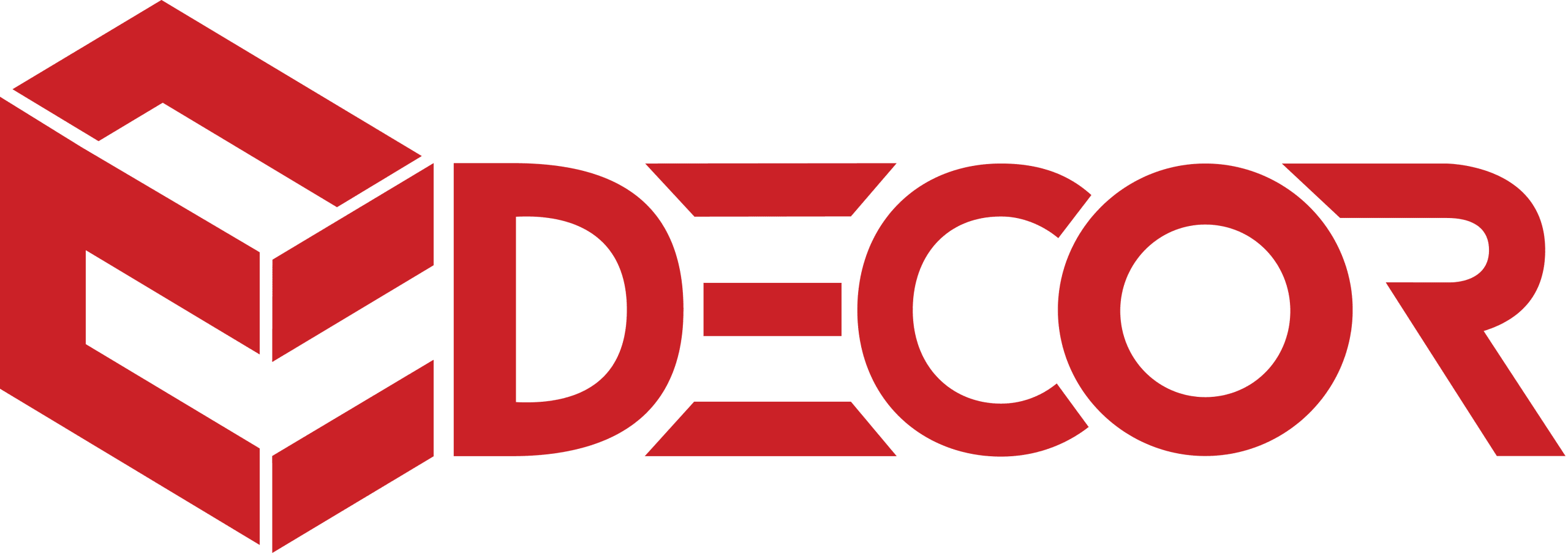- Shifting Landscapes: Business & Innovation Navigating Today’s World News Cycle.
- The Shifting Media Landscape
- Business Adaptability in a Dynamic World
- The Role of Technology in Staying Informed
- Innovation as a Response to Change
- The Importance of Data Analytics
- Global Interconnectedness and its Implications
- The Rise of Remote Work and Distributed Teams
- Navigating the Future: Challenges and Opportunities
Shifting Landscapes: Business & Innovation Navigating Today’s World News Cycle.
In today’s rapidly evolving global landscape, staying informed is more critical than ever. The constant flow of information, often referred to as ‘news’, shapes our understanding of the world, influences decision-making, and drives societal change. However, the sheer volume of available content, coupled with the rise of misinformation and the speed at which events unfold, presents significant challenges. It’s paramount to navigate this information ecosystem with discernment, seeking out reliable sources and critically evaluating the narratives presented. This ability to parse complex data is becoming a crucial skill in both professional and personal life.
The impact of current events extends far beyond immediate headlines. Economic trends, political shifts, and technological advancements are intertwined, creating a dynamic system where understanding the underlying relationships is key to anticipating future changes. Businesses, in particular, must remain agile and responsive to these developments, innovating and adapting to maintain a competitive edge. This constant state of flux demands a proactive approach to knowledge acquisition and a willingness to embrace change.
The Shifting Media Landscape
The way we consume information has undergone a dramatic transformation in recent decades. Traditional media outlets, such as newspapers and television broadcasts, are increasingly complemented – and sometimes overshadowed – by digital platforms and social media. This democratization of information access offers both opportunities and challenges. While it enables a wider range of voices to be heard, it also raises concerns about the spread of false or misleading information and the erosion of trust in established institutions. The importance of media literacy, the ability to critically evaluate information sources, cannot be overstated.
Business Adaptability in a Dynamic World
Businesses operating in the modern world face a multitude of challenges stemming from a constantly evolving global climate. Supply chain disruptions, geopolitical instability, and rapidly changing consumer preferences all demand a high degree of adaptability. Those organizations that can effectively anticipate and respond to these changes are most likely to thrive. Strategic forecasting, data-driven decision-making, and agile operational practices are key elements of this resilience. Proactive risk management is absolutely necessary.
| Supply Chain Disruption | Diversify suppliers, build inventory buffers |
| Geopolitical Instability | Scenario planning, political risk insurance |
| Changing Consumer Preferences | Market research, product innovation |
| Cybersecurity Threats | Robust security protocols, employee training |
The Role of Technology in Staying Informed
Technology plays a dual role in navigating the modern information landscape. On one hand, it provides access to an unprecedented wealth of information. On the other hand, it also contributes to the spread of misinformation and the creation of echo chambers. Artificial intelligence (AI) and machine learning (ML) are increasingly being used to filter and curate information, but these technologies are not without their biases. Similarly, social media algorithms can reinforce existing beliefs, limiting exposure to diverse perspectives. Therefore it is imperative to broaden your base of media sources.
Successfully deploying technology requires understanding these capabilities and limitations. It’s not simply about having access to information, but about effectively utilizing tools to analyze, synthesize, and interpret it. This means developing skills in data literacy, critical thinking, and discerning source credibility. Furthermore, developing sound digital habits that promote balanced information consumption are very important in today’s world.
Effective platforms and tools, when used correctly, can provide a considerable edge. This requires a continuous learning process and an adapting approach.
Innovation as a Response to Change
Innovation is no longer a luxury; it’s a necessity for organizations seeking to survive and thrive in a rapidly changing world. From developing new products and services to reimagining business models and operational processes, businesses must continually seek ways to stay ahead of the curve. A culture of innovation fosters experimentation, encourages risk-taking, and embraces failure as a learning opportunity. Investing in research and development (R&D) and fostering collaboration across disciplines are also essential. Dedication to new insights is key.
- Embrace a Culture of Experimentation
- Invest in R&D
- Foster Cross-Disciplinary Collaboration
- Develop Adaptive Strategies
- Prioritize Customer Feedback
The Importance of Data Analytics
Data analytics has emerged as a critical tool for businesses seeking to make informed decisions. By collecting, analyzing, and interpreting large datasets, organizations can gain valuable insights into customer behavior, market trends, and operational efficiency. These insights can be used to optimize marketing campaigns, develop new products, improve customer service, and streamline business processes. However, it’s important to note that data analytics is not a silver bullet. The quality of the data itself is crucial, and biased data can lead to misleading conclusions. A deep analytical skill set is required for companies to succeed, and it must be continually updated.
Furthermore, ethical considerations are paramount. Businesses must ensure that data is collected and used responsibly, respecting privacy and avoiding discrimination. Transparency and accountability are essential for building trust with customers and stakeholders. The ability to translate data insights into actionable strategies is a key differentiator in today’s competitive landscape and should be honed continuously.
Mastering data analytics will allow organizations to carve out a competitive advantage.
Global Interconnectedness and its Implications
The increasing interconnectedness of the global economy creates both opportunities and challenges for businesses. While it provides access to new markets and resources, it also increases exposure to geopolitical risks, economic volatility, and cultural differences. Companies must develop a global mindset and adapt their strategies to navigate this complex environment. This requires understanding international trade regulations, managing currency fluctuations, and building relationships with partners from diverse backgrounds. Effective cross-cultural communication skills are essential for building trust and fostering collaboration.
- Develop a Global Mindset
- Understand International Trade Regulations
- Manage Currency Fluctuations
- Build Strong International Partnerships
- Prioritize Cross-Cultural Communication
The Rise of Remote Work and Distributed Teams
The COVID-19 pandemic accelerated the trend towards remote work and distributed teams. Technologies that enabled such collaboration were quickly embedded into workflows and processes. While this shift presents clear benefits in terms of flexibility and cost savings, it also raises new challenges related to team cohesion, communication, and productivity. Organizations must invest in tools and processes that support remote collaboration, such as video conferencing, project management software, and secure communication platforms.
Equally important is fostering a strong sense of community and belonging among remote team members. Virtual team-building activities, regular check-ins, and opportunities for professional development can help to overcome the challenges of physical distance. To sustain performance, a supportive and trusting environment is integral. This transition requires a cultural shift, with managers embracing a more decentralized and empowering leadership style. Understanding employee needs becomes key.
Ensuring productivity requires a commitment to employee well-being and a focus on outcomes rather than hours worked.
Navigating the Future: Challenges and Opportunities
Looking ahead, the pace of change is only likely to accelerate. Disruptive technologies, such as artificial intelligence, blockchain, and the Internet of Things, will continue to reshape industries and create new opportunities. Businesses that can anticipate these trends and adapt their strategies accordingly will be best positioned to succeed. This requires a long-term perspective, a willingness to experiment, and a commitment to continuous learning. Adaptability will be the defining characteristic of successful organizations. Deep consumer understanding will always be paramount.




 Round Rugs
Round Rugs  Wool Rugs
Wool Rugs  Vintage Rugs
Vintage Rugs 


 Carpet Tiles
Carpet Tiles  Carpet
Carpet 
 Embossed Rug
Embossed Rug  Plain Rug
Plain Rug 
 2.5'*4'
2.5'*4'  2'*3'
2'*3'  3'*5'
3'*5'  5*7.5
5*7.5 













 Artificial Grass
Artificial Grass  Mats
Mats 
 Soil
Soil  Fertilizer
Fertilizer  Pesticides
Pesticides